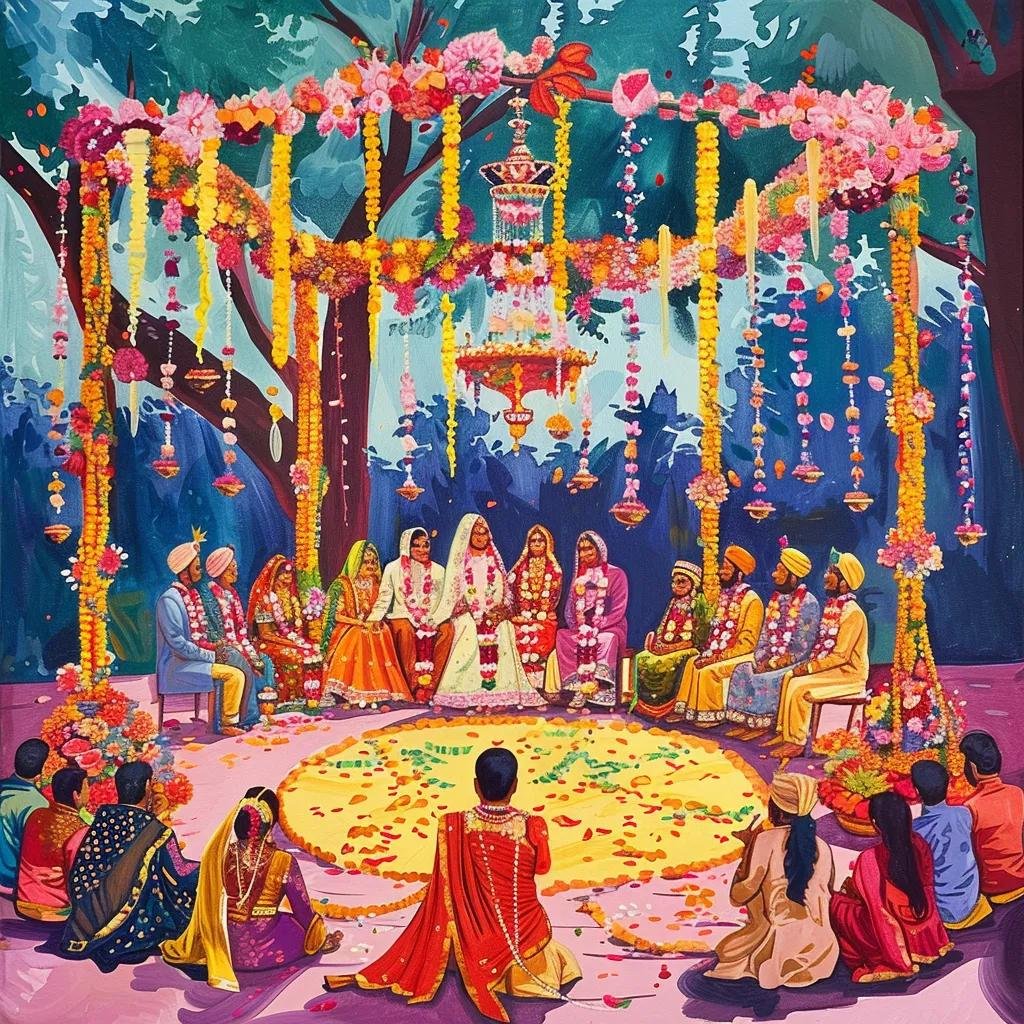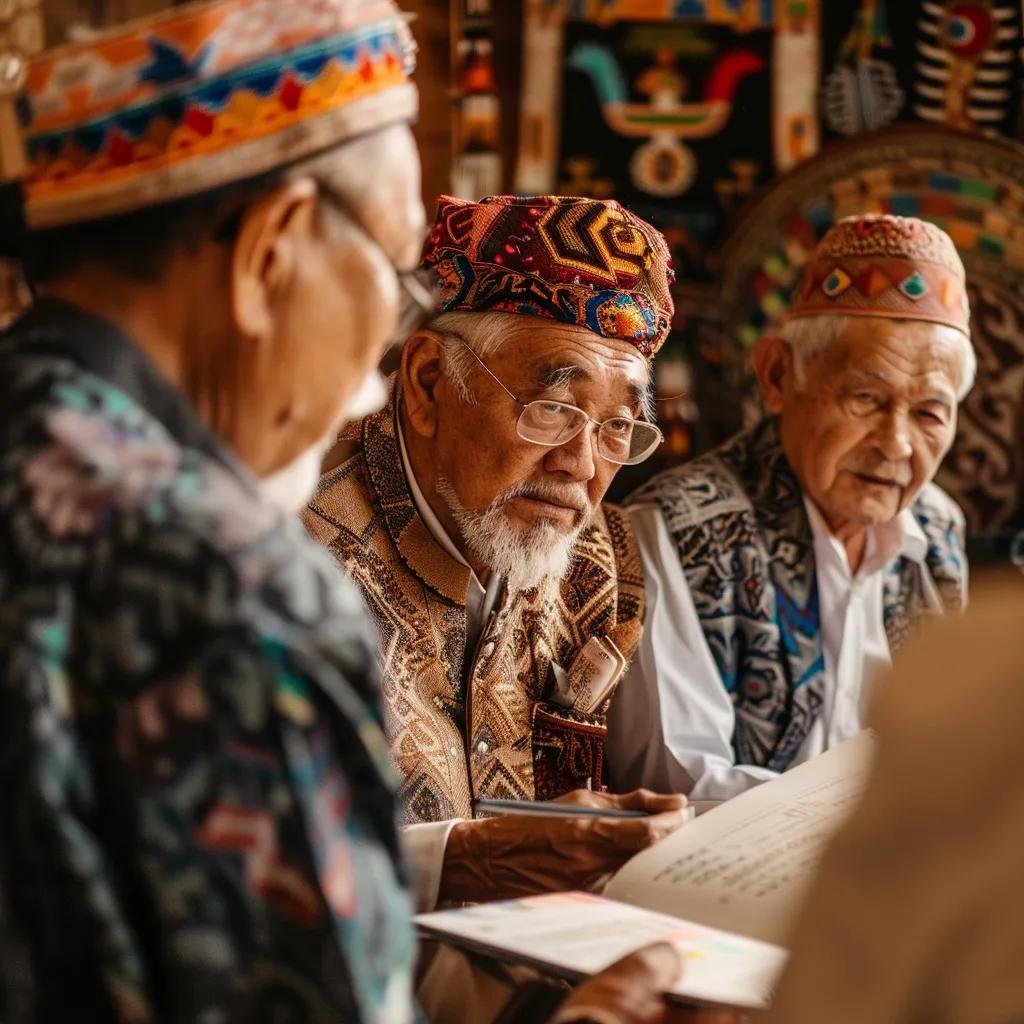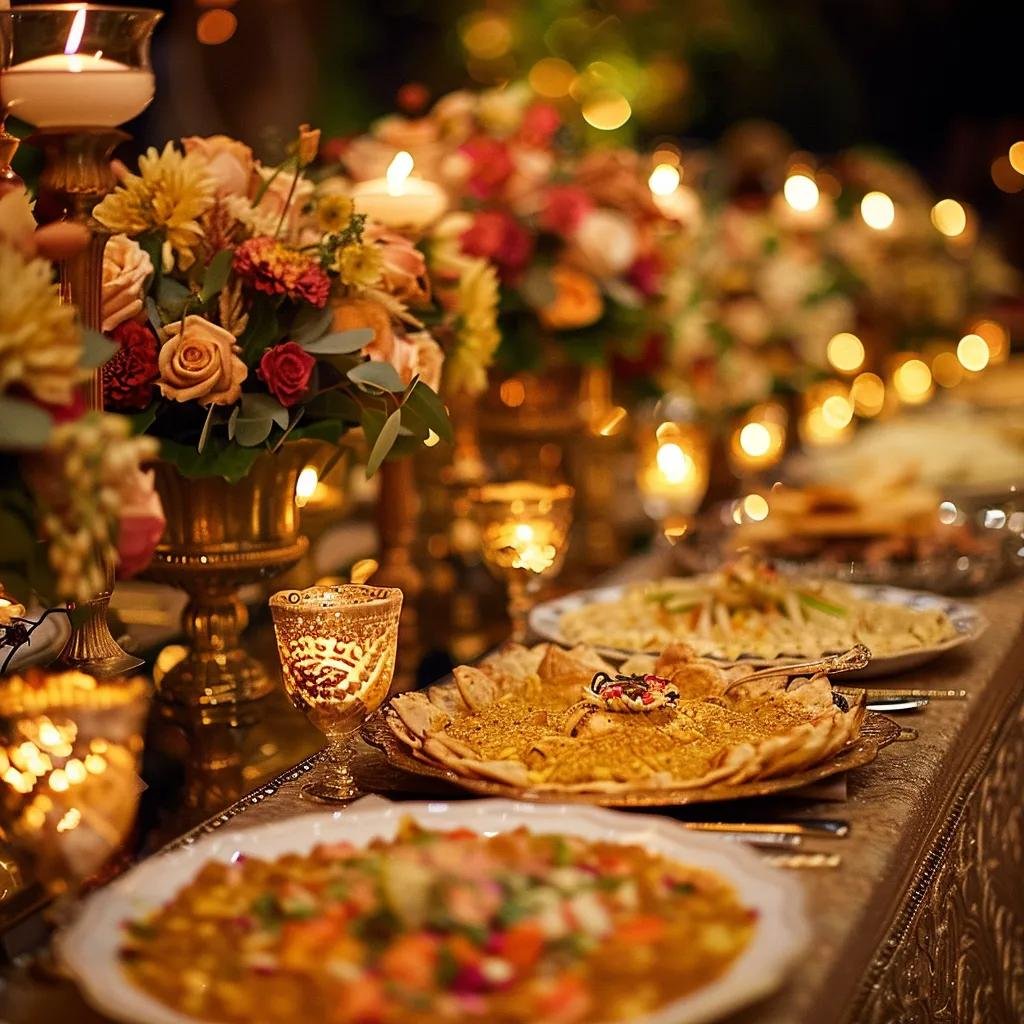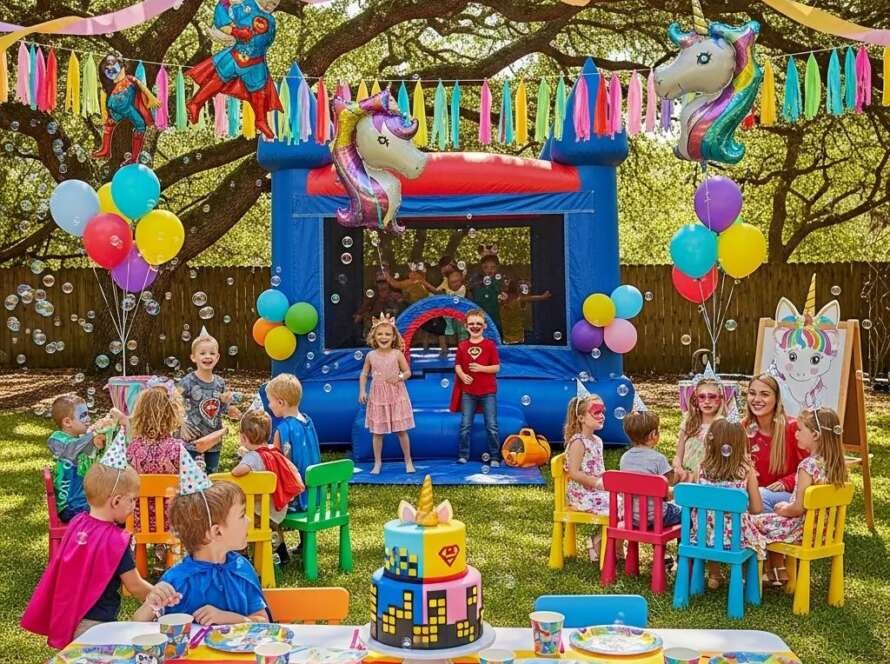Seamlessly Orchestrating Authentic Indian Wedding Traditions

Ever wondered how Indian weddings, with their rich tapestry of up to five unique ceremonies, manage to stay true to centuries-old traditions while dazzling with modern flair? Enter the wedding planner—your cultural custodian and detail maestro. This guide reveals why a planner is your go-to for honoring diverse traditions, breaks down the essential ceremonies they oversee, and shows how they transform design and sensory elements into genuine celebrations. Discover how a professional planner ensures cultural authenticity, seamless coordination, and stress-free celebrations from start to finish.
Understanding Indian Wedding Traditions
Indian weddings are a vibrant mosaic of customs and ceremonies, each varying by region, religion, and family. These traditions unfold over several days, encompassing pre-wedding, main ceremony, and post-wedding rituals, each steeped in cultural significance [2, 6, 7].
This source offers a glimpse into the myriad of Indian wedding traditions, underscoring the importance of preserving cultural authenticity.
Why Is a Wedding Planner Essential for Preserving Indian Wedding Traditions?
A wedding planner is your cultural guardian, ensuring your Indian wedding mirrors genuine regional customs within a meticulously organized framework.
The Role of a Wedding Planner
Wedding planners are indispensable for navigating the complexities of Indian weddings, from vendor coordination to timeline management, all while balancing family expectations with modern preferences [13, 16]. They ensure each ritual is honored authentically and that the event flows seamlessly [13].
This source backs the article’s insights on the advantages of hiring a wedding planner, particularly in managing the multifaceted aspects of an Indian wedding.
How Does a Planner Understand and Integrate Diverse Indian Cultural Nuances?

A planner delves into regional variations, secures expert vendors, and tailors each detail to local customs.
- They study local rites and consult community elders to verify symbolic elements.
- They collaborate with specialized vendors who provide authentic attire, music, and cuisine.
- They adapt ceremonies to your family’s heritage—be it Maharashtrian or Punjabi—while maintaining narrative continuity across events.
This deep cultural integration sets the stage for seamless multi-day coordination.
How Does a Planner Manage Multi-Day Indian Wedding Events Seamlessly?
Orchestrating multiple ceremonies requires precise timelines, vendor coordination, and guest logistics.
- Timeline Management – Planners craft hour-by-hour schedules covering pre-wedding, ceremony, and post-wedding events.
- Vendor Coordination – They synchronize caterers, decorators, musicians, and officiants across venues.
- Guest Flow – They oversee transportation, lodging details, and on-site signage to guide families through each ritual.
Seamless event flow naturally leads to balanced expectations.
How Does a Planner Balance Family Expectations with Modern Wedding Preferences?
A planner harmonizes tradition and innovation by mediating family preferences and contemporary style.
- They host design workshops to align elders’ ceremonial requirements with the couple’s vision.
- They introduce modern décor touches—like LED mandaps or fusion cuisines—while preserving ritual integrity.
- They facilitate family discussions to confirm participation roles and seating arrangements.
Navigating expectations transforms into a celebration that honors heritage and personal style.
What Are the Key Indian Wedding Rituals a Planner Ensures Are Authentically Honored?
A planner safeguards each ritual’s meaning and execution, from pre-wedding blessings to emotional farewells.
How Are Pre-Wedding Ceremonies Like Haldi, Mehendi, and Sangeet Planned Authentically?
Below is a structured overview of pre-wedding events demonstrating Entity → Attribute → Value:
| Ritual | Symbolism | Planner’s Action |
|---|---|---|
| Haldi | Purification and blessings | Curates turmeric paste stations and music |
| Mehendi | Beauty and auspiciousness | Engages professional mehendi artists |
| Sangeet | Joy and family bonding | Arranges choreographed performances |
These intentional details ensure each pre-wedding ritual resonates with cultural depth and communal harmony.
How Does a Planner Coordinate Main Ceremony Rituals Such as Baraat, Mandap, Saptapadi, and Kanyadaan?
A planner orchestrates key ceremonies with ceremonial accuracy and aesthetic grace:
- Baraat procession routes, dhol performances, and welcome rituals are choreographed for energy and tradition.
- Mandap décor features authentic floral garlands, sacred fabrics, and canopy designs aligned to the couple’s heritage.
- Saptapadi vows under the mandap are sequenced with priests, translators, and family guides for clarity and reverence.
- Kanyadaan seating, sanctified offerings, and familial blessings occur without logistical disruption.
This cohesive coordination elevates the central wedding ceremony into a seamless cultural rite.
How Are Post-Wedding Traditions Like Vidaai and Aashirwad Managed by a Planner?
A planner transitions from ceremony closure to emotional farewells with care:
- Vidaai arrangements include vehicle décor, guest escort plans, and ceremonial send-off scripts.
- Aashirwad seating, gift distributions, and spiritual readings are coordinated to honor elders’ blessings.
- Transportation logistics ensure the couple’s safe departure intertwined with ritual symbolism.
Thoughtful management of closing rites provides dignity and emotional support for families.
How Does a Wedding Planner Craft Authentic Indian Wedding Experiences Through Design and Detail?

Planners weave tradition into every sensory element, crafting ceremonies that feel genuine and memorable.
What Is the Significance of Traditional Decor and Mandap Designs in Indian Weddings?
Understanding décor attributes exposes core symbolism:
| Element | Attribute | Cultural Meaning |
|---|---|---|
| Mandap | Sacred canopy | Union under divine witness |
| Floral garland | Fresh marigolds, roses | Prosperity, purity, and devotion |
| Rangoli | Colored floor patterns | Wards off evil and welcomes guests |
Authentic décor anchors ceremonies in heritage while preparing for culinary and musical experiences.
How Does a Planner Curate Authentic Indian Wedding Cuisine and Music?
A planner partners with specialist caterers and musicians to ensure cultural resonance:
- Selected menus highlight regional dishes—like Hyderabadi biryani, Gujarati farsan, or South Indian filter coffee.
- Live musicians perform classical ragas, Bollywood medleys, or devotional hymns aligned with each ceremony.
- Culinary stations replicate family heirloom recipes under professional supervision.
Delightful flavors and melodies reinforce the authenticity established by décor.
How Does a Planner Guide Couples on Traditional Indian Wedding Attire and Its Cultural Meaning?
Planners advise on attire that carries cultural weight:
- They recommend bridal lehengas, saris, and groom’s sherwanis that reflect family customs.
- They collaborate with designers skilled in hand-embroidery, regional textiles, and symbolic color palettes.
- They organize fittings, draping tutorials, and attire rehearsals to ensure confidence on the wedding day.
Attire guidance transforms personal style into a meaningful cultural statement.
How Does a Wedding Planner Ensure Meticulous Detail and Flawless Execution in Indian Weddings?
Attention to logistics and vendor networks guarantees that every element performs in harmony.
How Is Timeline and Budget Management Handled for Complex Indian Weddings?
A planner enforces structure through:
- Detailed budget spreadsheets tracking allocations and vendor invoices.
- Milestone-based payment schedules to vendors preventing last-minute surprises.
- Dynamic timeline adjustments responsive to venue availability and guest count changes.
Budget transparency and schedule precision pave the way for trusted vendor partnerships.
How Does a Planner Select and Coordinate Trusted Vendors for Authentic Services?
Vendor management involves:
- Vetting cultural specialists—photographers, florists, caterers—with proven track records.
- Negotiating contracts that detail specific cultural deliverables and contingency plans.
- Aligning vendor responsibilities with the overall event timeline for seamless execution.
Vendor Coordination and Management
Effective vendor coordination is crucial for a successful Indian wedding. This involves selecting trusted vendors, negotiating contracts, and aligning responsibilities with the event timeline [4, 15, 19]. Clear communication and a well-defined plan are key to ensuring a seamless event experience [19, 20].
This source provides insights into the importance of vendor coordination, which supports the article’s discussion on how a wedding planner ensures meticulous detail and flawless execution.
Reliable vendor coordination ensures authenticity and operational excellence.
How Does a Planner Manage Crisis and Day-Of Coordination to Maintain Wedding Flow?
A planner acts as on-site problem solver by:
- Assigning dedicated coordinators for immediate issue resolution—from décor delays to weather contingencies.
- Maintaining backup inventories of essential items—umbrellas, extra décor, power supplies.
- Monitoring guest experience and vendor performance to keep ceremonies on schedule.
Proactive crisis management safeguards the integrity of each ritual and celebration.
What Are the Benefits of Hiring a Wedding Planner for Authentic Indian Wedding Traditions?
Engaging a planner delivers emotional relief, cultural accuracy, and budget efficiency.
How Does a Planner Reduce Stress and Simplify Indian Wedding Planning?
A planner takes on complex logistics so you can focus on celebration:
- They manage all vendor communications, timeline updates, and guest logistics.
- They provide clear, consolidated checklists reducing decision fatigue.
- They offer proactive progress reports to keep you informed, not overwhelmed.
Stress reduction allows you to experience each moment fully.
How Does a Planner Guarantee Cultural Accuracy and Respect for Traditions?
Cultural authenticity is upheld through:
- Ongoing consultations with religious leaders and community experts.
- Detailed rehearsal schedules to familiarize families with ceremonial steps.
- Customized event scripts that preserve original ritual languages and interpretations.
This commitment to tradition fosters genuine respect and lasting memories.
How Does Hiring a Planner Provide Value for Indian Wedding Budgets?
A planner maximizes ROI through:
- Bulk-rate negotiations with vendors, reducing overall costs.
- Transparent budget tracking that avoids hidden fees or overages.
- Value-adding recommendations—such as combined décor packages—that maintain quality without inflation.
Cost transparency and prioritization strategies ensure budget efficiency without compromising authenticity.
Secure your authentic Indian wedding experience by partnering with Let’s Groove Events. Our expert planners ensure cultural fidelity, seamless execution, and unforgettable celebrations that honor your heritage with every detail.



